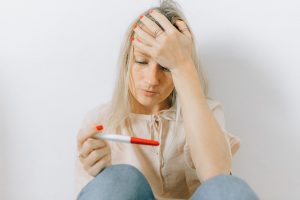Women who are trying to avoid getting pregnant or want to know their safe days can find a lot of information online, but there is a lot of conflicting information. We looked at the science behind making a safe day and found out just how important it is to take into account more than just your cycle.
Table of Contents
What are Safe Days To Not Get Pregnant
There are a lot of methods out there for avoiding pregnancy, but they’re not all created equal. If you’re looking for safe days to not get pregnant, your best bet is to use the rhythm method.
The rhythm method, also known as the calendar method, involves tracking your menstrual cycle and abstaining from sex on the days when you’re most fertile. When used correctly, it can be up to 99% effective at preventing pregnancy.
To use the rhythm method, you’ll need to keep track of your menstrual cycles for at least six months. You can do this by charting your cycles on a calendar or using a fertility tracking app. Once you have a good understanding of your cycle, you can start to predict when you ovulate each month.
Ovulation typically happens about 14 days before your next period, but it can vary from month to month. To be safe, you should avoid sex or use contraception during the five days leading up to ovulation and the day of ovulation itself.
If you want to avoid pregnancy but don’t want to abstain from sex altogether, there are other options available. Barrier methods like condoms.
Should I Use Birth Control?
There’s a lot of misinformation out there about birth control, and it can be tough to sort through everything to figure out what’s best for you. If you’re wondering whether or not you should use birth control, here are a few things to consider.
First, do you want to avoid pregnancy or are you trying to treat a medical condition? If you’re just trying to prevent pregnancy, there are many different types of birth control available, so you’ll have plenty of options to choose from. However, if you’re using birth control to treat a medical condition like endometriosis or PCOS, you’ll want to make sure that the type of birth control you choose is effective for that condition.
Second, what are your lifestyle factors? If you’re sexually active, have multiple partners, or don’t always use condoms, you may be at a higher risk for STDs. In this case, you may want to consider using a birth control method that also protects against STDs, like the pill or an IUD with hormones.
Third, how well do you handle taking medication regularly? Birth control pills need to be taken every day at the same time in order to be effective.
Conclusion
We hope this article has helped clear up some confusion about the safe days to not get pregnant. Remember, every woman’s body is different, so it’s important to track your own menstrual cycle and pay attention to your own body’s signals to determine when you are most fertile. If you have any concerns or questions, be sure to talk to your healthcare provider.







